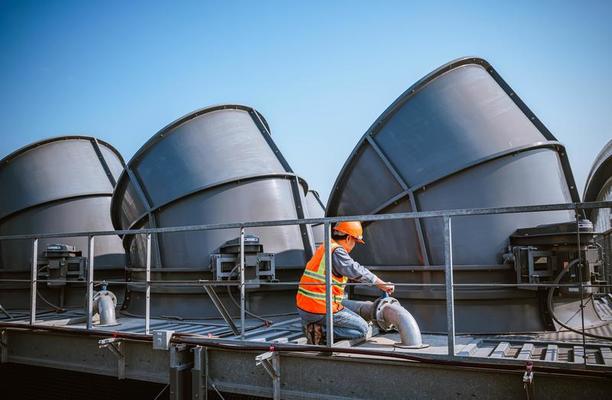Thermal Harmony: Mastering Your Home's Heating and Air Conditioning
Thermal Harmony: Mastering Your Home's Heating and Air Conditioning
Blog Article

In every home, the balance between warmth and coolness plays a crucial role in ensuring comfort throughout the year. As the seasons change, so do our heating and cooling needs, making it essential to master the art of managing these systems. Understanding how your heating and air conditioning systems work, as well as how to maintain them efficiently, can lead to a more pleasant living environment and even reduce energy costs.
Investing time in learning about your home's heating and air conditioning can transform your experience, allowing you to create a space that feels just right no matter the weather outside. Whether you are trying to fend off the chill of winter or seeking relief from summer's heat, achieving thermal harmony in your home is not just about comfort; it is about creating a sanctuary that enhances your quality of life.
Understanding HVAC Systems
HVAC stands for Heating, Ventilation, and Air Conditioning, representing the essential systems that regulate indoor climate and ensure comfort in residential and commercial spaces. These systems work together to provide a comfortable environment by controlling temperature, humidity, and air quality. Understanding the components of HVAC can help homeowners make informed decisions about their heating and cooling needs.
Heating systems typically include furnaces, boilers, and heat pumps, all designed to warm the indoor space. Furnaces use fuel such as natural gas or electricity to generate heat, while boilers use water or steam. Heat pumps, on the other hand, can function as both heaters and coolers, offering versatility in managing indoor temperatures. Selecting the right heating system depends on factors such as the size of the home, local climate, and available energy sources.
Air conditioning systems are vital for cooling and dehumidifying indoor air during hot months. These systems can be split units, central air conditioning systems, or window units. Central air systems distribute cool air through ducts, making them ideal for larger homes, while split systems often provide efficient solutions for individual rooms. Proper maintenance of both heating and air conditioning units is crucial to ensure efficiency and longevity, making regular checks and servicing a priority for homeowners.
Energy Efficiency Tips
To enhance the energy efficiency of your heating and air conditioning systems, regular maintenance is essential. This includes changing or cleaning air filters monthly, ensuring that airflow is unobstructed, and scheduling professional inspections at least once a year. Well-maintained systems operate more efficiently, resulting in lower energy consumption and costs. Additionally, cleaning the outdoor units of your air conditioning system can improve its performance, as dust and debris can reduce airflow and efficiency.
Another effective strategy for improving energy efficiency is to invest in a programmable thermostat. This device allows you to set schedules for when your heating or cooling systems should operate, ensuring they only run when needed. For example, you can program the thermostat to lower the temperature while you are away from home or during the night. This not only saves energy but also maintains comfort when you return or wake up.
Lastly, consider enhancing your home's insulation and sealing any air leaks, as this can significantly reduce the workload on your HVAC system. Insulating attics, walls, and floors and using caulk or weatherstripping on doors and windows will help maintain stable indoor temperatures. By minimizing the amount of conditioned air that escapes your home, you can improve the efficiency of your heating and air conditioning systems and lower your utility bills.
Maintaining Optimal Comfort
To maintain optimal comfort in your home, it is essential to understand the importance of regular maintenance for your heating and air conditioning systems. By scheduling routine check-ups, you can prevent potential issues that might disrupt your indoor climate. This proactive approach ensures that your systems operate efficiently, helping to prolong their lifespan while keeping energy costs to a minimum.
Heating and Air Conditioning Maintenance Services
Another key element of comfort is the use of programmable thermostats and smart home technology. These advancements allow homeowners to customize their heating and air conditioning schedules based on their daily routines. With the ability to set different temperatures for various times of day, you can ensure your home remains at a pleasant temperature without overworking your systems. Embracing this technology means both comfort and cost savings.
Finally, consider the role of insulation and ventilation in achieving a balanced indoor environment. Proper insulation keeps the desired temperature from escaping, while good ventilation ensures fresh air circulation. Combining these elements with effective heating and air conditioning practices will create a comfortable atmosphere throughout the year, adapting to seasonal changes without compromising efficiency.
Report this page